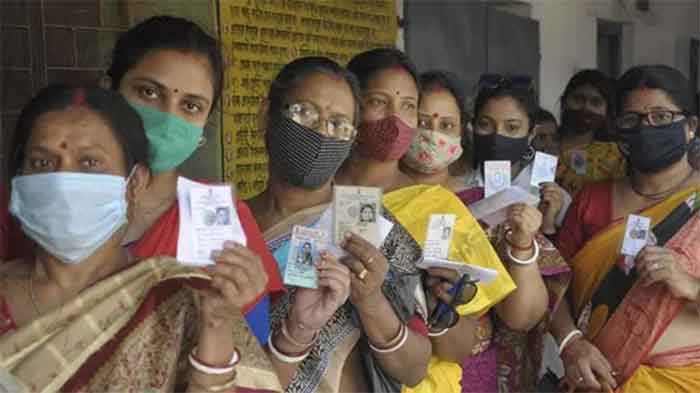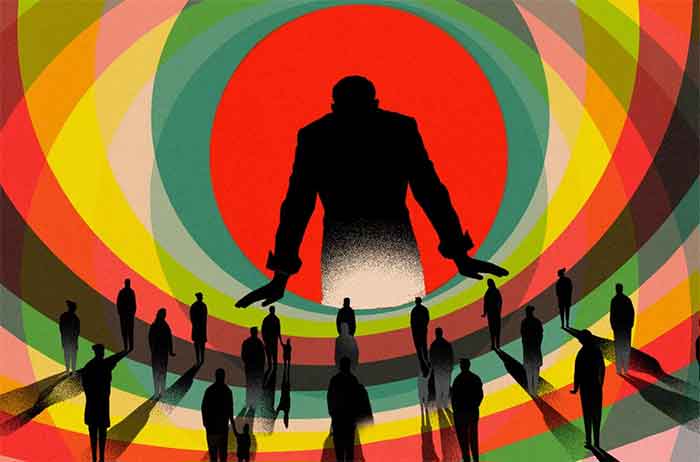
The foundations of the idea of Indian democracy which came into existence as the Republic of India on January 26, 1950, after a long fought battle of freedom, were quite strong and progressive as evident from the fact that women were given rights to participate and none of the sections of the society were left out in the process, which did not happen even in older democracies like America which became a democracy much earlier when the United States constitution was adopted on September 17, 1787.
So one may wonder as to why with an excellent start, the Indian democracy today is plagued with a massive exploitation of the right to franchise and the resulting embarrassment of the constitutional values and democratic principles which protect these rights. Here I would like to define the term “polarization” which refers to the state of being divided into two opposing groups, beliefs, or opinions. When polarization becomes extreme, it can lead to impasse and a failure to address important issues.
Let us magnify the preamble of our constitution and read it. I am calling for this magnification as over the years, politically motivated polarizations have made the principles of preamble too dwarf to be visible.
“WE, THE PEOPLE OF INDIA, having solemnly resolved to constitute India into a SOVEREIGN SOCIALIST SECULAR DEMOCRATIC REPUBLIC and to secure to all its citizens:
JUSTICE, social, economic and political;
LIBERTY of thought, expression, belief, faith and worship;
EQUALITY of status and of opportunity;
and to promote among them all
FRATERNITY assuring the dignity of the individual and the unity and integrity of the Nation”
It is unfortunate to observe that every principle that would have contributed for a matured democracy in India, over the years have undergone colossal polarization thus weakening it to its roots. Isn’t it true that today Indians are everything but “We”. The country has failed to provide a collective assurance to the principles of constitution as laid down in the preamble. India can withhold its constitution as a secular state only when the religiously majority community accepts the coexistence of other religions to help the state to be neutral. In the same breath, the religious minorities must rise to appreciate this gesture from their fellow community to strengthen the secular values of the state. It did work for years and largely the secular traditions were very much alive in the community. The religious polarization for political motives have darkened the secular fabric in recent times. However, the hope is not all lost as at the core of it the communities still enjoy the hospitality on religious festivities and share respect for each other’s feelings.
The socialist causes are more motivated to empower the political leaders than to uplift the people from the lower social stratum. We used to hear that “justice delayed is justice denied” and now the notion of “selective justice” seems to have weakened the trust of the people. For liberty, it is believed that it would have been better if the writers of constitution have also included the liberty to dress and food. The way of Indian economy creating a wide gap with rich becoming richer and poor becoming poorer does not fit to the principles of socialist state as a guarantor of equality and social justice. The principle of fraternity assuring the dignity of the individual seems to have lost a lot of relevance with the Bilkis Bano case, which possesses volumes of questions for every citizen of this country, but is subjudice and therefore prohibited from public discussion elsewhere.
It is important for all of us as Indians to pledge our faith in the principles of our constitution to let our democracy thrive and set an example for the rest of the world. One of the ways we can do this is by neutralizing the attempts and effects of polarization, which is politically motivated, distracts us from the issues that really influence our life such as food, education, health and threatens to undermine the sense of liberty and dignity, which we owe to the next generations of Indians. I leave the audience to realize the beauty of India’s pluralistic society that made Allama Iqbal write the following:
“Maẕhab nahīṉ sikhātā āpas meṉ bair rakhnā
Hindī haiṉ ham, wat̤an hai Hindositāṉ hamārā
Yūnān o-Miṣr o-Rūmā, sab miṭ ga’e jahāṉ see
Ab tak magar hai bāqī, nām o-nis̱ẖaṉ hamārā
Kuch bāt hai ki hastī, miṭtī nahīṉ hamārī
Ṣadiyoṉ rahā hai dus̱ẖman daur-i zamāṉ hamārā”
Mohammad Fahad Ullah, PhD, MRSC, Professor, Mississauga, ON L5B 0K4, Canada
















































